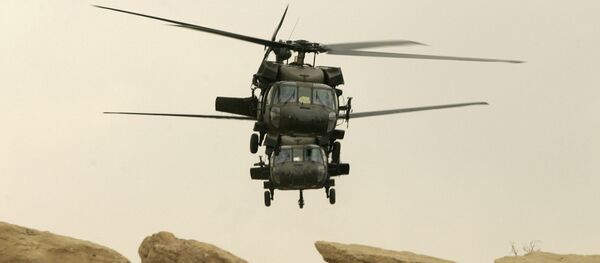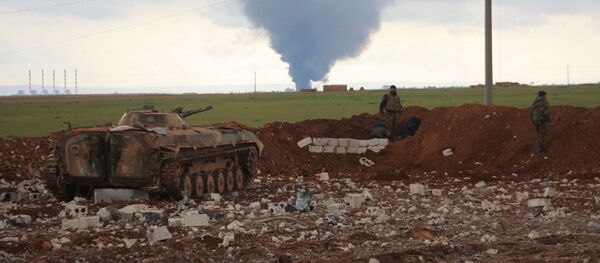Ward refers to US Defense Secretary Ash Carter's shift in the strategy that envisages a more assertive approach against Daesh and the deployment of US boots on the ground in Iraq and Syria.
In his official speech Carter noted that "one of the great ironies, which is that the countries of the region have made the least contributions to the counter-[Daesh] coalition, including the Gulf countries."
Indeed, Jordan, Saudi Arabia, Bahrain and the United Arab Emirates have all recently halted their air campaigns against the terrorist organization.
While the Pentagon is expected to deploy about 500 troops of the US Army's elite 101st Airborne Division to Iraq and Kuwait as part of the campaign against Daesh next month, US special operation forces continue to carry out their mission in Syria aimed at supporting and training the so-called "Syrian moderate rebels."
He insists that Washington should push Moscow, Tehran and other regional players toward two primary objectives: to implement a cease-fire in Syria and to kick off the so-called "political transition" in Damascus.
The expert did not explain, however, why he believes Assad's stepping down would facilitate the negotiation process and allow the US-led coalition to defeat Daesh. Facts on the ground clearly indicate that it is Bashar al-Assad's Syrian Arab Army who has been successfully defeating Daesh in Syria.
To complicate matters further, it turns out that Daesh is not the only group that poses a terror threat to the Middle Eastern realms and neighboring regions.
According to the influential American Enterprise Institute for Public Policy Research (AEI), Syrian al-Qaeda affiliate al-Nusra Front "poses one of the most significant long-term threats of any Salafi-jihadi group."
"This al-Qaeda affiliate [al-Nusra Front] has established an expansive network of partnerships with local opposition groups that have grown either dependent on or fiercely loyal to the organization… [Daesh and al-Qaeda] use terrorism as a tactic, but these organizations are insurgencies that aim first to overthrow all existing governments in the Muslim world and replace them with their own, and later, to attack the West from a position of power to spread their ideology to all of humanity," the AEI's report reads.
In this light, former CIA Director David Petraeus' idea to use "moderate members" of al-Nusra Front to fight Daesh in Syria, voiced by the retired Army general in September 2015, looks not only controversial but completely nonsensical.
Remarkably, the idea was also discussed by the neocon Brookings Institution in August 2015:
"The US-led coalition has no viable ground force in Syria, and Nusra might be amenable to breaking with al-Qaeda provided the right incentives," Clint Watts, former FBI special agent on a Joint Terrorism Task Force, noted in his article.
In October 2015 Bangkok-based geopolitical analyst Tony Cartalucci threw the Obama administration's Middle Eastern strategy into question, referring to regular massive defections of the Free Syrian Army (FSA) fighters and other Syrian "moderate" groups backed by Washington to the al-Qaeda affiliate al-Nusra Front.
The question then arises whether rebuilding "the current governance structure" and ousting Bashar al-Assad make any sense at all; and how exactly the Pentagon's strategy should be changed to deal a mortal blow to Daesh and al-Qaeda in Syria and Iraq.




